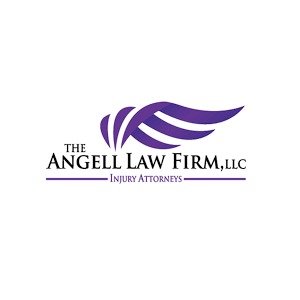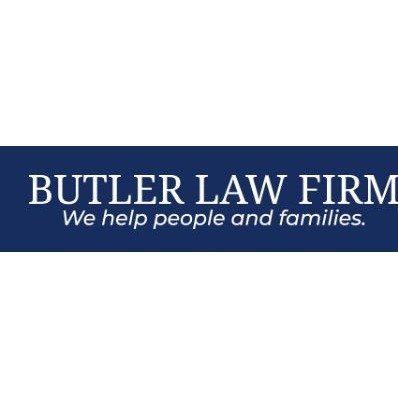Best Car Accident Lawyers in Atlanta
Share your needs with us, get contacted by law firms.
Free. Takes 2 min.
List of the best lawyers in Atlanta, United States
About Car Accident Law in Atlanta, United States
Car accidents often result in injuries, property damage, and emotional distress. In Atlanta, United States, car accident laws are designed to protect the rights of those affected by such incidents and provide them with legal remedies. Understanding the basics of car accident law can be crucial if you find yourself in such a situation.
Why You May Need a Lawyer
While not every car accident requires legal assistance, there are several situations where consulting a lawyer is highly recommended:
- If you or someone involved suffered severe injuries
- In cases where fault or liability is disputed
- When dealing with uncooperative insurance companies
- If the accident involves multiple parties
- When it is unclear who is at fault
Local Laws Overview
Understanding local laws can help you navigate the legal process after a car accident in Atlanta, United States. Some key aspects include:
- Georgia operates on a fault-based car insurance system, meaning the at-fault party is responsible for covering the damages.
- Drivers must carry minimum liability insurance coverage, including $25,000 for bodily injury per person and $50,000 per accident.
- Georgia follows a comparative negligence rule, where if you are found partially at fault, your compensation may be reduced proportionally.
- There is a statute of limitations of two years for filing a personal injury lawsuit after a car accident.
Frequently Asked Questions
1. What should I do immediately after a car accident in Atlanta, United States?
After a car accident:
- Ensure everyone's safety and call emergency services if necessary.
- Exchange information with the other driver(s) involved and gather evidence (photos, witness statements).
- Report the accident to your insurance company.
2. How is fault determined in car accidents in Atlanta, United States?
Georgia follows a modified comparative negligence rule, where fault is allocated based on the degree of negligence. If you are found more than 50% at fault, you may not be entitled to compensation.
3. Can I still recover damages if I was partially at fault for the car accident?
Yes, under Georgia's comparative negligence rule, you can still recover damages if you were partially at fault. However, your compensation may be reduced based on the percentage of fault assigned to you.
4. How long do I have to file a personal injury lawsuit after a car accident?
In Atlanta, you generally have two years from the date of the accident to file a personal injury lawsuit. It's important to consult with a lawyer to understand the specific deadlines applicable to your case.
5. What can a lawyer do for me in a car accident case?
A car accident lawyer can assist you in various ways, including:
- Evaluating your case, determining liability, and estimating the potential value of your claim
- Collecting evidence, interviewing witnesses, and reconstructing the accident if necessary
- Negotiating with insurance companies on your behalf to maximize your compensation
- Filing a lawsuit and representing you in court, if a settlement cannot be reached
Additional Resources
If you need further legal advice or assistance regarding car accidents in Atlanta, United States, consider contacting the following resources:
- Atlanta Bar Association - https://www.atlantabar.org/
- State Bar of Georgia - https://www.gabar.org/
- Georgia Department of Insurance - https://www.oci.ga.gov/
Next Steps
If you require legal assistance for a car accident in Atlanta, United States:
- Reach out to a reputable car accident lawyer for a consultation and evaluation of your case.
- Provide them with all relevant documents, evidence, and details of the accident.
- Follow their guidance and advice in pursuing a fair resolution, whether through negotiations or legal action.
- Stay in regular communication with your lawyer and keep them updated on any new developments.
Lawzana helps you find the best lawyers and law firms in Atlanta through a curated and pre-screened list of qualified legal professionals. Our platform offers rankings and detailed profiles of attorneys and law firms, allowing you to compare based on practice areas, including Car Accident, experience, and client feedback.
Each profile includes a description of the firm's areas of practice, client reviews, team members and partners, year of establishment, spoken languages, office locations, contact information, social media presence, and any published articles or resources. Most firms on our platform speak English and are experienced in both local and international legal matters.
Get a quote from top-rated law firms in Atlanta, United States — quickly, securely, and without unnecessary hassle.
Disclaimer:
The information provided on this page is for general informational purposes only and does not constitute legal advice. While we strive to ensure the accuracy and relevance of the content, legal information may change over time, and interpretations of the law can vary. You should always consult with a qualified legal professional for advice specific to your situation.
We disclaim all liability for actions taken or not taken based on the content of this page. If you believe any information is incorrect or outdated, please contact us, and we will review and update it where appropriate.









